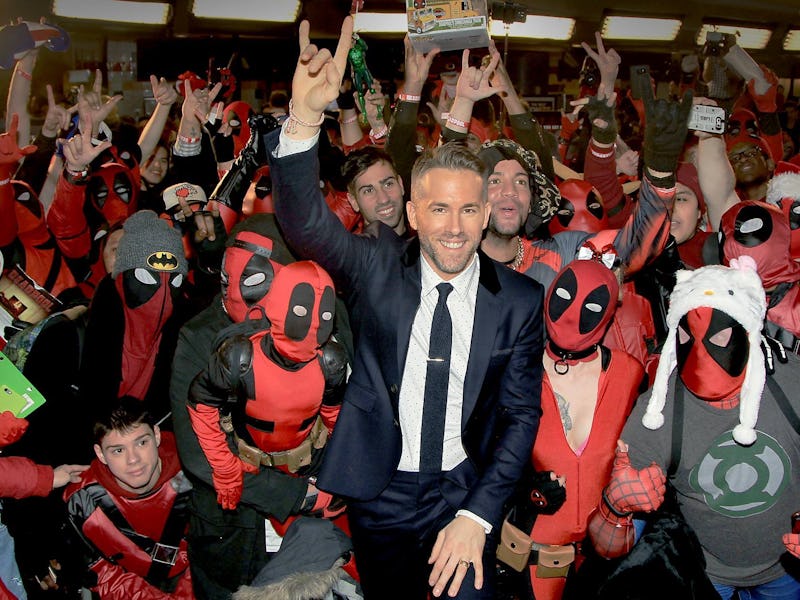'Deadpool' Manufactured Its Own Notoriety, and It Worked
Is the hard R-rated anti-superhero movie actually offensive to anyone?

This weekend Deadpool decapitates, slices, maims, punches, kicks, and offends his way into theaters around the country. The character has been positioned as the alternative to the aggressively homogenous big-screen superheroes who have racked up billions of dollars for Marvel and other 20th Century Fox-owned characters so far. But for all the innuendo and raunchy ads for Deadpool — and, gracious, there are a zillion of ’em — the end result falls comfortably at the family-friendly edge of its R-rating.
There’s an inherent contradiction at the heart of the Deadpool movie, one that wanders in and out of a big budget superhero gray area. By his nature, Deadpool is the kind of foul-mouthed antihero who shouldn’t really get his own multi-million dollar movie. Wolverine got his a few different times just because, deep down, audiences love the tragedy inherent in that character. But Deadpool?
It was a stretch until director Tim Miller and star Ryan Reynolds found themselves at the forefront of a grassroots viral campaign that gave 20th Century Fox cover to test out this NSFW second-tier Marvel cad. But the movie was still a 20th Century Fox production, one that couldn’t really push any boundaries besides being rated R and being bloodier, fuckier, and bawdier than any X-Men throwdown.
This was never going to be an NC-17 endeavor. Its potentially offensive reputation had to come from a calculated marketing push, and it succeeded in manufacturing notoriety before anybody outside the production had seen a single frame of the movie. Miller admitted that he had to cut a scene for being “too vulgar,” while co-star T.J. Miller promised a director’s cut of the movie that will be “even more raw” than the movie playing in theaters.
If the marketing were accurate, someone should have been offended by it, and we’re not talking about just disliking the movie as a whole. There are handfuls of those reactions, like this one from The Irish Times that calls Deadpool “cheap, exploitative, unreconstructed rubbish” in the review’s headline, while explaining it “plays like a dim 15-year-old’s impression of what a grown-up superhero film might look like.” Which might not be meant as praise, hard to tell.
The reactions so far have agreed that it’s provocative, framing that as a positive. Its unexpectedly healthy 84 percent score on Rotten Tomatoes says that reviewers choking on indistinguishable superhero gunk were ready for something meta and blue. Cursory quotes from reviews say it’s “Dizzyingly scabrous, borderline offensive and wonderfully refreshing” or “crass, selfish, and with a vocabulary that would have made George Carlin blush.” These are good qualities.
But seriously, where are the offended mothers boycotting suburban screenings of the movie that will supposedly ruin the innocent and impressionable brains of their children who were probably going to sneak in anyway? Where are the religious groups sending out press releases denouncing this horrible, no-good trash? Did they fall for the movie’s faux-rom-com advertising, or do they just think it’s another superhero movie?
It appears, in fact, that Deadpool threaded the needle. It wanted to appear edgy and offensive — perhaps to dim 15-year-olds? — but in truth it settled into the mainstream studio definition of risky. Which is to say, not very. Dirty Grandpa probably has worse moments. Ultimately, this rendition of Deadpool settled into a naughty niche that fell far shy of real provocation.
But that ballyhooed reputation seems to have worked. The big R-rated gamble made a record $12.7 million on Thursday night leading into the four-day weekend. The underdog might even finish the weekend as the top movie in the country. An affront to general American sensibilities, it ain’t. This would-be underdog story, in fact, is right at home with the big, profitable middle of the superhero genre.